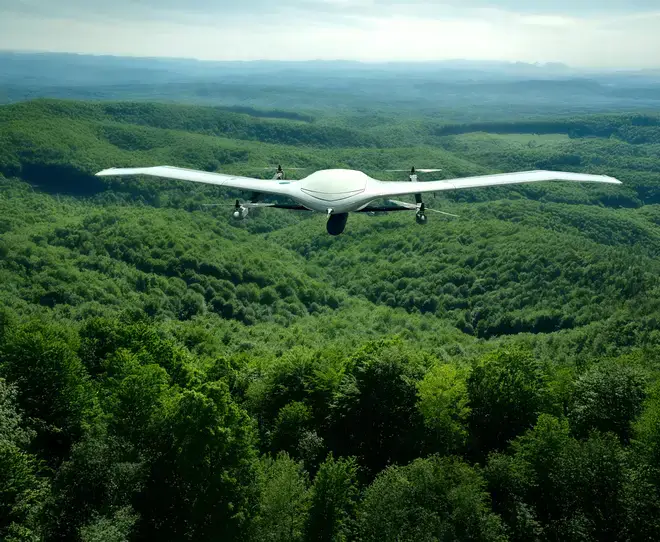British and American forces have trialled a revolutionary air-to-air counter-drone system for the first time as part of a new Ministry of Defence programme designed to get cutting-edge technology into the hands of soldiers.
The system, developed by European tech firm Alpine Eagle, was successfully demonstrated during Project Vanaheim, a series of intensive field tests designed to rapidly identify and deploy solutions against the drone threats that have defined the war in Ukraine.
The MoD has stressed that Vanaheim is not “just another industry event” but a “dynamic, field-based test environment” where companies work directly with Army personnel. The first trials took place in Germany in June, with further events scheduled through the summer.
This new, hands-on approach is designed to close a critical capability gap against small, hostile drones. In a sign of the project's success, Alpine Eagle has announced a major UK expansion, appointing former Royal Navy officer Michael Golden as its new Head of UK.
Under the criteria for Project Vanaheim, the MoD specified it was seeking technology ready for immediate operational assessment, with a Technology Readiness Level of 6 to 9.
The systems needed to be usable by "generalist soldiers", portable by foot or light vehicle, and capable of countering the small "class 1" drones, including the highly-agile first-person view (FPV) models used extensively by Russia.
Firms were told their solutions should ideally be compliant with the military’s Generic Vehicle Architecture and SAPIENT data standards, allowing them to integrate with existing battlefield management systems.
Alpine Eagle was one of a select group of companies whose technology met these stringent requirements. Its Sentinel system, the first of its kind, can be fitted to aircraft to hunt and neutralise enemy drones from the air, representing the kind of "innovative approach" the MoD stated it was "actively seeking".
By participating, companies are given a unique opportunity to “deploy your product(s) in a realistic operational environment” and receive “immediate feedback and tactical insights” from soldiers that will “shape the future of your product development.”
The MoD added that contributions would “directly influence future British Army’s effort to address its most urgent C-UAS challenges.”
Michael Golden, a former Royal Navy aerospace engineer and McKinsey consultant who will lead Alpine Eagle's UK arm, said the trial highlighted the need for allied cooperation.
“Whilst a huge amount of attention has been focused on drone technology, there has been very little energy dedicated to developing systems that can reliably and effectively protect against the thousands of drones being used in warfare, until now,” Mr Golden said.
“The UK and Europe face the same challenge… that means that any solution built has to be by Europe, including the UK, for Europe.”
Alpine Eagle, which already supplies the German military, plans to invest in British manufacturing and research, developing new products for export from the UK.
Jan-Hendrik Boelens, the founder and chief executive of Alpine Eagle, said: “The fundamental shift in how war is being fought in Ukraine demonstrates how national governments need to transform their thinking behind technology, procurement and warfare."
Ukrainian UAV successfully dropping a homemade incendiary bomb into a building occupied by Russian troops.
Last week a former Nato general secretary warned Britain and its people are not safe, telling Parliament that describing the country as underprepared for war is an "understatement".
Lord Robertson of Port Ellen, who co-wrote the Strategic Defence Review (SDR), said the UK is lacking in ammunition, training, people, logistics, and medical capacity.
He told the upper chamber: "Bearing in mind the difficult world that we live in and have to survive in, this is what I firmly believe: we are underinsured, we are underprepared, we are not safe.
"This country and its people are not safe.
"The British people are faced with a world in turmoil, with great power competitions spilling over now into conflict, with constant grey zone attacks on our mainland, and with Russia – often with the co-operation of Iran, China and North Korea – challenging the existing world order.
"We simply in this country are not safe."
The Labour peer wrote the review alongside the former commander of the joint forces command, General Sir Richard Barrons, and defence adviser Dr Fiona Hill.
Artificial intelligence, drones and a £1 billion investment in homeland missile defence all form part of the review's plan to keep the UK safe in the face of threats from Vladimir Putin's Russia and the rise of China.


